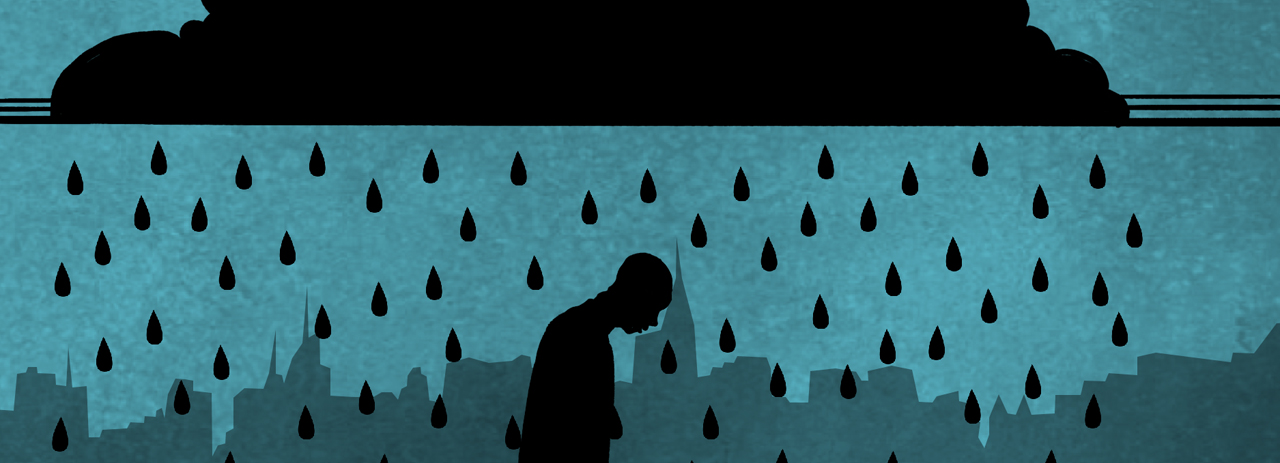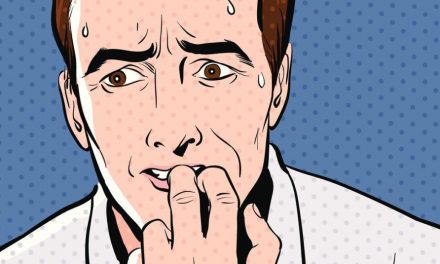Mental health is highly stigmatized in American culture, a fact compounded by the relative lack of availability for comprehensive health care for the general public. For many years the popularized image of a “real man” was that of the stoic hero, one for whom compassion was a secondary trait. It isn’t difficult to see this exemplified in most classic war films, Westerns, or action movies. Even now, when one of the most-prescribed medications last year was to treat anxiety, often people who admit to having emotional difficulties are presumed to either be faking a condition or just unable to cope with normal life.
Depression isn’t just “feeling sad,” like some kind of downer that a quick run or funny movie can cheer up. Depression is a damp and suffocating blanket that makes even the most mundane actions, like getting out of bed or choosing which clothes to wear, seem like Herculean tasks. Energy is sapped, motivation is quashed, and even positive aspects of living seem oppressive or out of reach.
I suffer from depression, and suspect that I have for most of my life. About 18 months ago and again a short time later my normally omnipresent and general malaise was replaced with a crushing, acute sense of worthlessness, episodes which scared me enough to seek help, something I’m quite terrible at. I knew that if something didn’t change, I may not make it through a third.
For the past year I’ve been regularly attending therapy and taking daily medication to help control my mood. For a long while it felt like the drugs heavily blunted life, taking both the high peaks as well as filling in the valleys. Luckily I responded well to a change and while things still aren’t great, the most severe side-effects of my mental state have been quieted.
Deciding to tell family and close friends that I had reached such depths as to need treatment was neither easy nor comfortable. Each were supportive in their own ways and as best they could, but realistically it’s up to me to make my own life. Over the past two years I’ve lost friends, employees, clients, and even my lover because of my mental state, and those losses genuinely cut me to the quick; I try not to focus on them as I work to move forward but reminders are everywhere.
For the past two months or so I’ve been in a funk. My medication helps me from getting too low, but my default mood these days has been on the low end of the spectrum, aggravated by an almost constant anxiety stemming from the depression itself. I never feel productive or successful enough, able to do what “needs” to be done, able to provide for the people in my life, all of which funnels into a negative feedback loop.
As to what comes next, I don’t have the answers. I have a wonderful vacation planned with the love of my life but I still fear whether or not I’ll be able to turn off my brain enough to actually enjoy distant corners of the world. Will my team back home be able to function without me – and if so am I really needed, if not should I have gone in the first place?
There are moments of levity, of brightness, even of joy, just as there are also bouts of sadness and pain, wholly separate from the depression itself. Being depressed isn’t the absence of positive feelings, it’s more specifically an altered starting or midpoint on the emotional scale.
Perhaps what has been most consistently frustrating through this experience is the lack of rest. I can’t remember the last time I actually felt like I had a true day off, one where I could just silence those nagging doubts and fears, that worry and internal drama that plays through my head on repeat.
Writing about this topic isn’t easy, not just because it makes me feel exceptionally vulnerable but also because it could lead to further stigma, either in the workplace or in other relationships. Even with those risks however writing has always been a more healthy outlet for me, and hey what is the point of a personal website if I don’t add to it with what’s going on?
















